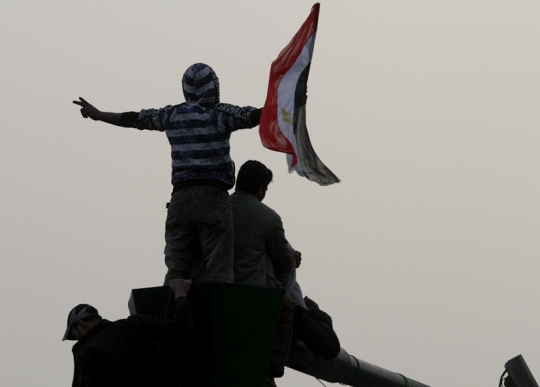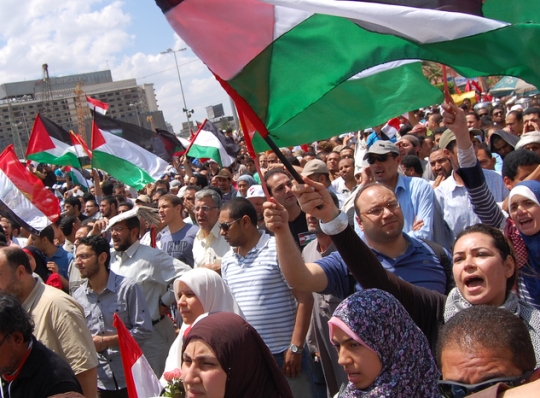After the Arab Spring: Challenges and Possibilities
The Middle East and North Africa (MENA) region has experienced drastic political shifts since the beginning of 2011. Unprecedented demonstrations calling for democratic change and social justice have confronted autocratic regimes responsible for decades of systematic violations of human rights, toppling of heads of state in Egypt, Tunisia, and Libya. Dozens of victims have been injured or killed daily in ongoing protests in Syria, Yemen, and Bahrain.
This time of transition raises questions of how to meaningfully address and establish accountability for past human rights violations, as well as restructure judicial and security institutions to prevent the recurrence of violations. Issues of justice, accountability, and rule of law are now key priorities in ongoing debates throughout the region.

Based on these critical questions, the International Center for Transitional Justice (ICTJ) conducted a broad assessment of the region’s current transitional justice needs, holding deliberations with local actors on how to best support their efforts in a manner sensitive to local political and social norms.
In Egypt, activists and human rights advocates voiced serious concern that the political transition to date has been neither transparent nor inclusive. Without a comprehensive approach to address the violations committed by the previous regime and a much-needed security sector reform process, Egyptian authorities will face continued challenges in the path towards democracy and respect for the rule of law.
After the fall of former President Hosni Mubarak, civil society in Egypt expressed a strong desire to hold those responsible for human rights violations to account, and issued demands for reparations, truth-seeking, and institutional reform. These demands shaped the idea for a conference titled “Transitional Justice in Egypt and the Arab World: Challenges and Possibilities” organized by ICTJ and the Cairo Institute for Human Rights Studies, to be held in Cairo October 30–31.

Intended as a platform for sharing lessons learned in comparative experiences, the conference will engage policymakers, government officials, civil society leaders, victims groups, journalists, and academics from across the Middle East and North Africa region.
Topics discussed will include truth-seeking, criminal justice, reparations, and the role of women in transitional justice, as well as considering means to prevent human rights violations in the future, with a special focus on judicial reform and vetting. Given the serious human rights violations taking place in Syria, Yemen and Bahrain, the conference will also consider changes awaiting these countries in light of civil societies' calls for justice. View the complete conference agenda here.
According to ICTJ MENA Director Habib Nassar, the conference is designed to “initiate dialogue with representatives of Egyptian civil society, political movements, and government officials on the possibilities of transitional justice in Egypt through studying and analyzing the experiences of countries that have witnessed similar transitional conditions. This conference also aims to derive lessons from political developments and some justice initiatives adopted in other countries of the region.”
Photos: One month after the Revolution started, people are celebrating on Tahrir Square. Eric N's Flickr photostream; Tahrir Square May 13 2011, naicomenó's Flickr photostream.
